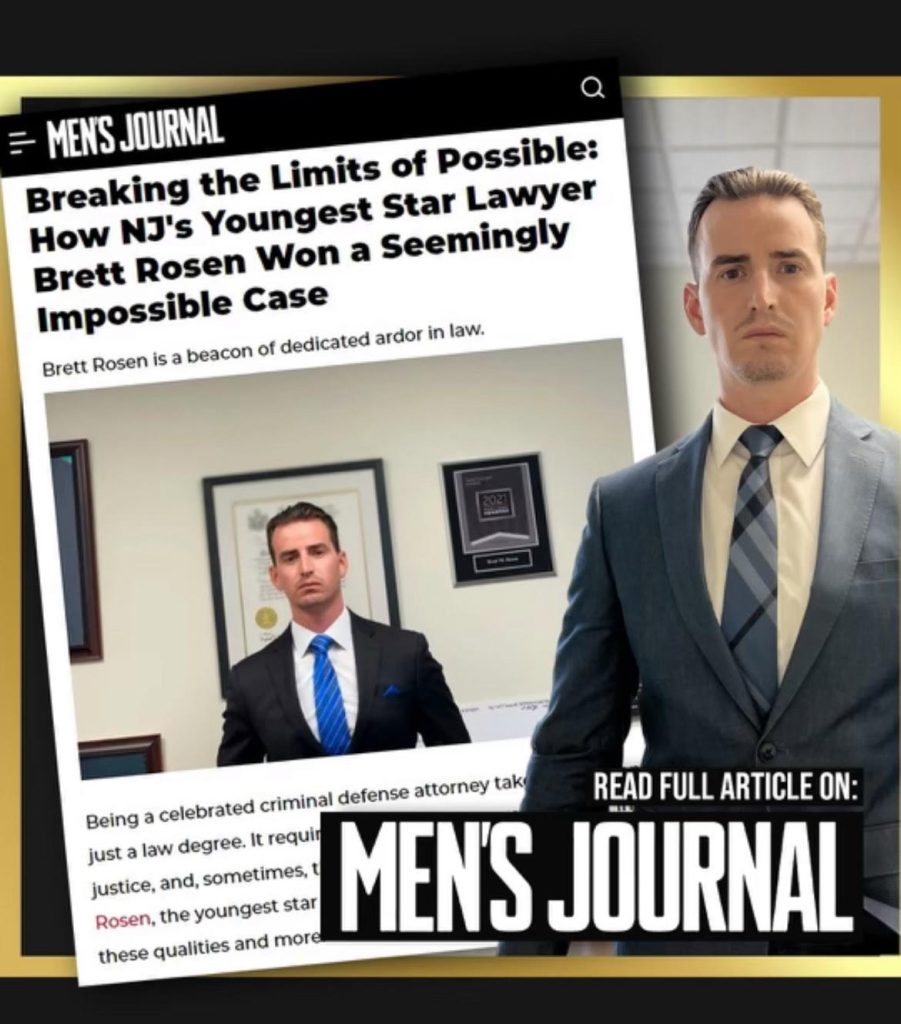Hearsay Exceptions in New Jersey Criminal Cases: A Comprehensive Guide by Brett M. Rosen, Esq.

The outcome of a criminal case often hinges on the evidence presented in court. One of the most complex evidentiary rules involves hearsay – testimony that relies on an out-of-court statement to prove the truth of the matter asserted. While generally inadmissible, numerous exceptions exist under New Jersey law. This comprehensive guide by Brett M. Rosen, Esq. provides a detailed overview of hearsay exceptions in New Jersey criminal cases, their strategic implications, and how they can impact your case.
Understanding Hearsay
Hearsay is an out-of-court statement offered in court to prove the truth of the matter asserted. It’s generally inadmissible because the person making the original statement was not under oath, subject to cross-examination, or observed by the jury for their demeanor and credibility. However, recognizing that some out-of-court statements possess inherent reliability, the law carves out numerous exceptions.
Key Hearsay Exceptions in New Jersey
New Jersey Rules of Evidence (N.J.R.E.) 803 and 804 outline the specific exceptions to the hearsay rule. Here are some of the most common exceptions encountered in criminal cases:
1. Present Sense Impression (N.J.R.E. 803(c)(1))
- Statement Describing or Explaining an Event: This exception allows a statement describing or explaining an event or condition made while or immediately after the declarant perceived it.
- Example: A witness testifying, “I saw the defendant run a red light and yell, ‘I’m in a hurry!'” The statement “I’m in a hurry” is admissible as a present sense impression.
2. Excited Utterance (N.J.R.E. 803(c)(2))
- Statement Relating to a Startling Event: This exception allows a statement relating to a startling event or condition made while the declarant was under the stress of excitement caused by the event.
- Example: A witness, immediately after a car accident, exclaims, “That car came out of nowhere!” This statement is admissible as an excited utterance.
3. Then-Existing Mental, Emotional, or Physical Condition (N.J.R.E. 803(c)(3))
- Statement of Intent, Plan, Motive, Design, or Mental Feeling: This exception allows a statement of the declarant’s then-existing state of mind, including their intent, plan, motive, design, mental feeling, pain, or bodily health.
- Example: A defendant, before committing a crime, tells a friend, “I’m going to get even with him.” This statement might be admissible to show the defendant’s motive.
4. Statements for Medical Diagnosis or Treatment (N.J.R.E. 803(c)(4))
- Statements Made for Medical Purposes: This exception allows statements made for purposes of medical diagnosis or treatment, describing medical history, past or present symptoms, or the cause of the condition.
- Example: A victim telling a doctor, “I was punched in the stomach by my boyfriend,” is admissible under this exception.
5. Recorded Recollection (N.J.R.E. 803(c)(5))
- Record of a Matter the Witness Once Knew: This exception allows a record about a matter the witness once knew but now cannot recall well enough to testify fully and accurately, if the record was made or adopted by the witness when the matter was fresh in their memory and accurately reflects their knowledge.
- Example: A police officer referring to their written report to refresh their memory about the details of an arrest.
6. Business Records (N.J.R.E. 803(c)(6))
- Records of Regularly Conducted Business Activity: This exception allows records of a regularly conducted business activity if the record was made at or near the time of the event, by someone with knowledge, and it was the regular practice of that business activity to make the record.
- Example: Phone records, bank statements, or medical records could be admissible under this exception.
7. Public Records and Reports (N.J.R.E. 803(c)(8))
- Records of Public Offices or Agencies: This exception allows records, reports, statements, or data compilations, in any form, of public offices or agencies, setting forth (a) the activities of the office or agency, or (b) matters observed pursuant to duty imposed by law as to which matters there was a duty to report.
- Example: A police report detailing the observations of an officer at a crime scene.
8. Statements Against Interest (N.J.R.E. 803(c)(25))
- A statement which was at the time of its making so far contrary to the declarant’s pecuniary or proprietary interest, or so far tended to subject the declarant to civil or criminal liability…that a reasonable person in the declarant’s position would not have made the statement unless the person believed it to be true.
- Rationale: People are unlikely to make statements against their own interests unless they are true.
- Example: A witness testifying that the defendant admitted to them that they committed the crime.
Other Exceptions:
- Dying Declarations: Statements made by a person believing their death was imminent.
- Former Testimony: Testimony given at a prior hearing or trial if the witness is now unavailable.
- Statements of Identification: Statements identifying a person made after perceiving them.
Defenses Related to Hearsay
If the opposing party is trying to introduce hearsay evidence, Brett M. Rosen, Esq. can help you challenge it by:
- Objecting to Hearsay: Raising a timely objection to the admissibility of the evidence.
- Arguing Against an Exception: If the other party claims the statement falls under an exception, you can argue that it doesn’t meet the requirements of that exception.
- Attacking the Reliability of the Statement: Even if the statement falls under an exception, you can argue that it’s unreliable due to factors like the declarant’s perception, memory, or bias.
It’s understandable to be concerned about the consequences of improperly admitted hearsay evidence. Here’s what could happen:
- Objection and Appeal: If the opposing party introduces hearsay evidence, your attorney can object to its admissibility. If the judge overrules the objection and allows the evidence, it could be grounds for an appeal if you are convicted.
- Reversible Error: If an appellate court determines that the hearsay evidence was improperly admitted and that it prejudiced your case, it could lead to a reversal of your conviction and a new trial.
- Mistrial: In some cases, if the improperly admitted hearsay evidence is particularly damaging, it could lead to a mistrial.
Important Note: Even if hearsay evidence is admitted, it doesn’t automatically mean you’ll be convicted. The jury will consider all the evidence presented, and your attorney can argue that the hearsay evidence is unreliable or should be given less weight.
FAQs about Hearsay Exceptions in New Jersey Criminal Cases
- Can hearsay be used to prove any fact in a case?
- No. Hearsay can only be used to prove the truth of the matter asserted in the out-of-court statement.
- What is the most common hearsay exception used in criminal cases?
- Some of the most common exceptions include statements against interest, excited utterances, statements for medical diagnosis or treatment, and business records.
- How can I know if a statement is hearsay?
- Ask yourself: Is this statement being offered to prove the truth of what was said outside of court? If so, it’s likely hearsay.
- What if the person who made the out-of-court statement is available to testify? Does the hearsay rule still apply?
- Yes, the hearsay rule can still apply even if the person who made the statement is available. The key is whether the statement is being offered to prove the truth of what was said. If so, it’s hearsay, and an exception must apply for it to be admissible.
- Can hearsay be used in every type of court case?
- Hearsay rules apply in most court proceedings, including criminal and civil cases. However, there might be slight variations in how the rules are applied depending on the specific court or type of case.
Additional FAQs
Is there a difference between federal and New Jersey hearsay rules?
- While the general principles of hearsay are similar, there can be differences in specific exceptions or how the rules are interpreted. It’s essential to consult with an attorney familiar with New Jersey’s rules of evidence.
If someone confesses to a crime in a text message, is that text message admissible as a statement against interest?
- It could be, as long as the statement was against the person’s interest at the time they made it. However, the authenticity of the text message would also need to be established.
How can I challenge hearsay evidence in my case?
- Your attorney can raise objections to the admissibility of hearsay evidence, argue that it doesn’t meet the requirements of a specific exception, and attack the reliability of the statement.
Can I introduce hearsay evidence to help my case?
- Yes, if you have evidence that falls under a hearsay exception, your attorney can seek to have it admitted.
What if I didn’t object to hearsay evidence at trial? Can I still raise the issue on appeal?
- It’s generally more difficult to raise hearsay issues on appeal if you didn’t object at trial. However, there might be exceptions if the error was “plain error” that affected your fundamental rights.
Why Choose Brett M. Rosen, Esq. for Cases Involving Hearsay Issues?

Navigating the complexities of hearsay rules and exceptions requires an experienced attorney who understands the nuances of evidence law. Brett M. Rosen, Esq. has a proven track record of success in handling criminal cases involving hearsay issues. He will:
- Thoroughly analyze the evidence in your case, including any potential hearsay statements.
- Challenge the admissibility of hearsay evidence or argue for its inclusion if it benefits your case.
- Effectively cross-examine witnesses to expose inconsistencies or challenge the reliability of their statements.
- Develop a strong legal strategy that takes into account the rules of evidence and hearsay exceptions.
- Provide aggressive and knowledgeable representation in court.
If you are facing criminal charges in New Jersey, contact Brett M. Rosen, Esq. today for a free consultation. He is available 24/7 to discuss your case and provide expert legal guidance. 908-312-0368 & brett@nynjcriminalcivilesq.com
Disclaimer: This information is for informational purposes only and should not be considered legal advice. It is essential to consult with an attorney to discuss your specific legal situation.
